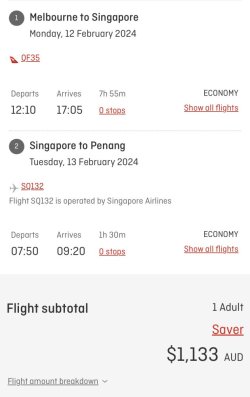You're making a range of assumptions regarding revenue management and distribution networks that are stylised towards a normative view of what you want it to be rather than what is actually is.
Partnerships are not all or nothing. QF interline with UA and DL, and sell connections on these airlines directly. AA don't have a childish fight over it. I'm sure AA look at it as a situation as one where QF use these since AA don't provide a comparable option. Rather than loose the pax directly to UA or DL, they accept that's it's something that QF need, and what's good for QF is good for AA (QF is somewhat of the senior partner given their relative trans Pacific capacity). Maybe QF need to offer that to satisfy other distribution needs (maybe corporate contracts, maybe distributor incentives, etc). Unless one actually knows why and what engagement they may have had over it, then you're making assumption with no knowledge of their revenue management and distribution networks.
If QR having an interline or more with QF were bothering VA that much then they could/should make the removal of it a condition of their own partnership with QR. They don't because they likely consider QR's codeshare and partnership a huge benefit to them. Also, QR is the senior partner and just like the example above, they likely have network and distribution needs that VA cannot fulfil. At the same time, you have no idea regarding the arrangement that QR and VA have. What margins and terms do they provide QR capacity at? Given how VA have gone into bat for QR, it suggests that the terms are very generous. Generous enough to the extent that they couldn't give a damn what QR do where VA cannot satisfy QR's needs? Seems likely. If VA cannot provide it, then it's still in VA's interest to have that traffic on QR rather than it going directly to QF and EK. Being pissed at QR for then using an interline and selling it directly to satisfy those needs (that VA themselves cannot fulfil) is the type of behaviour that cost VA dearly first time round.
















